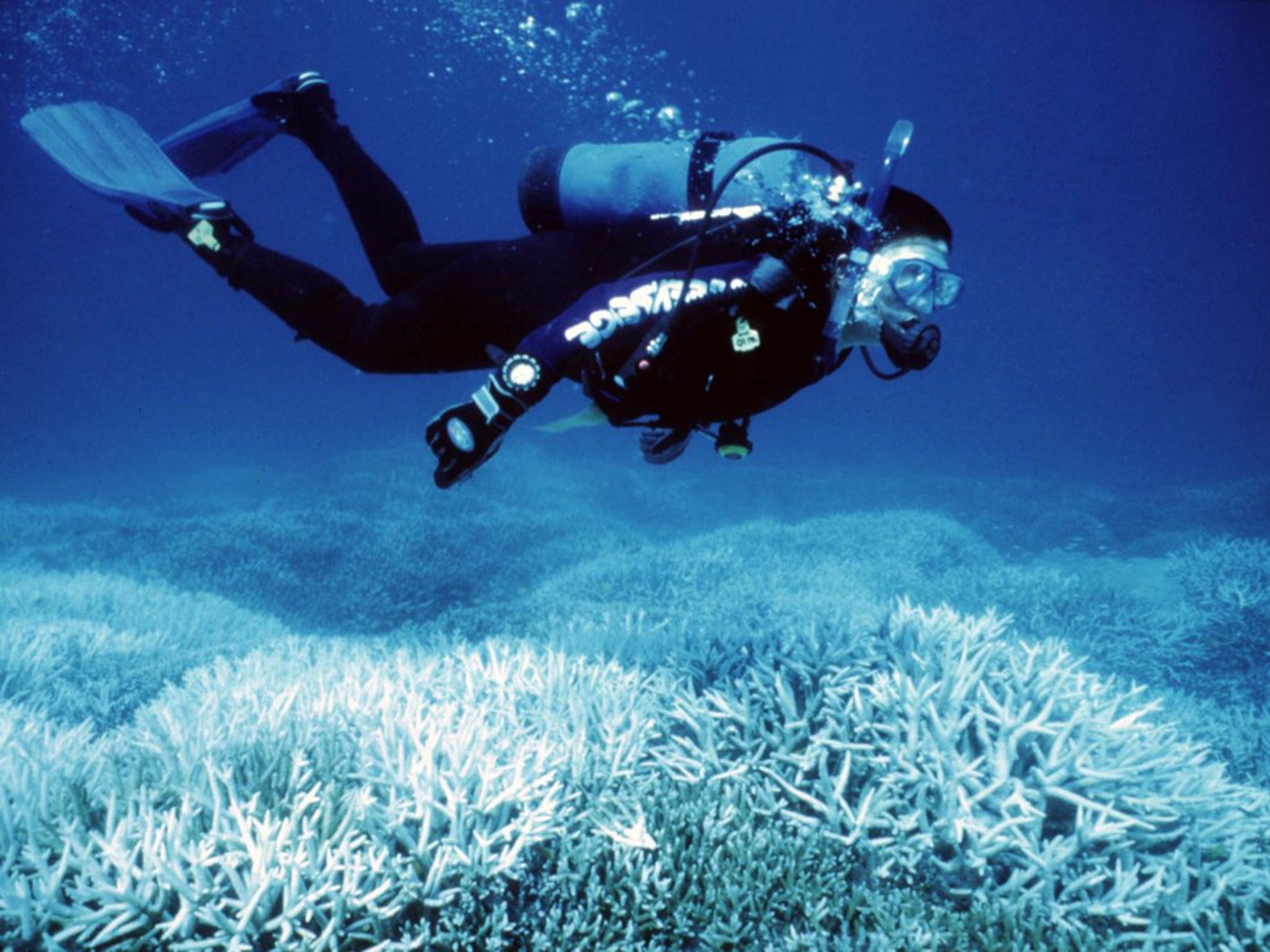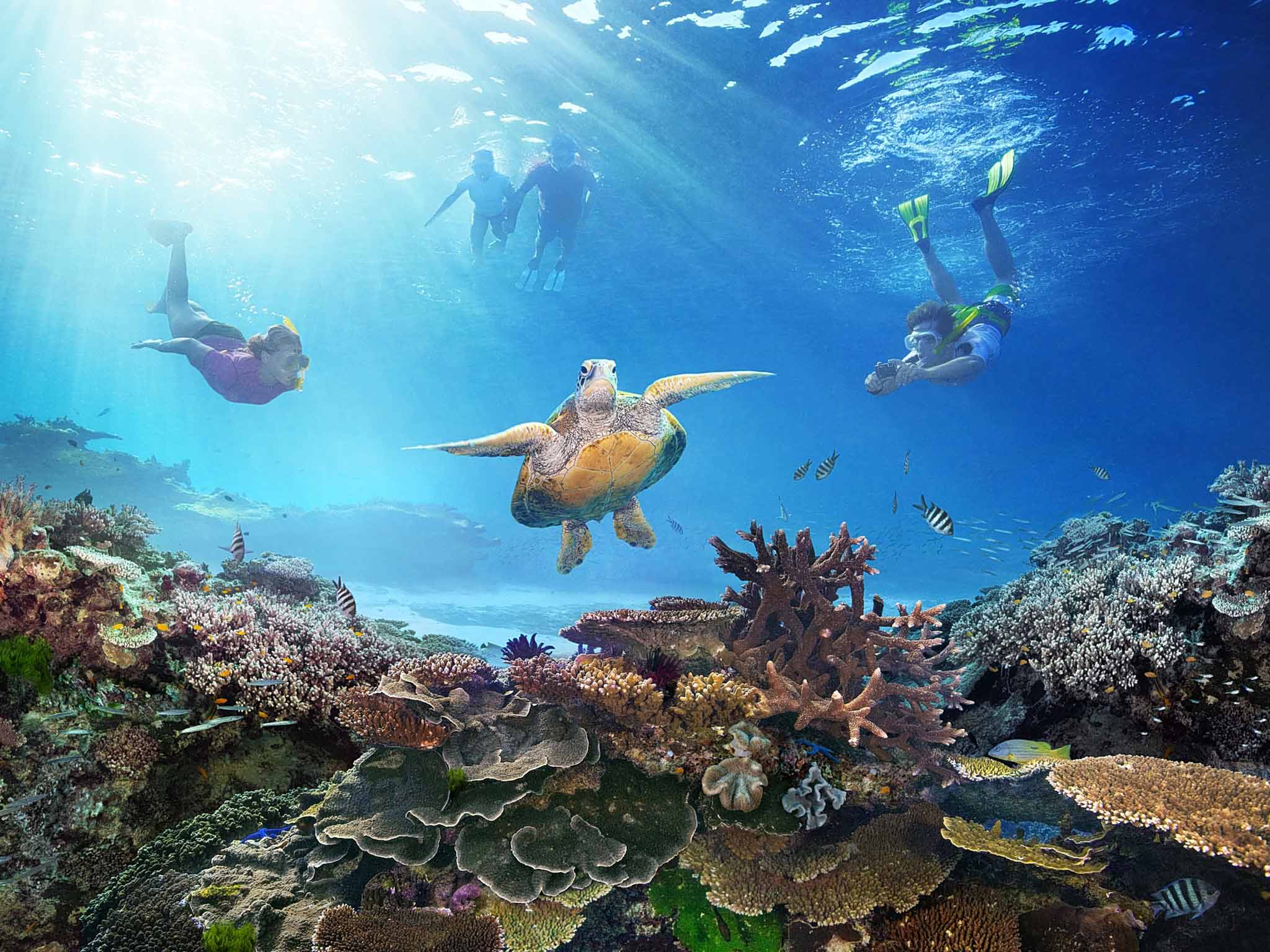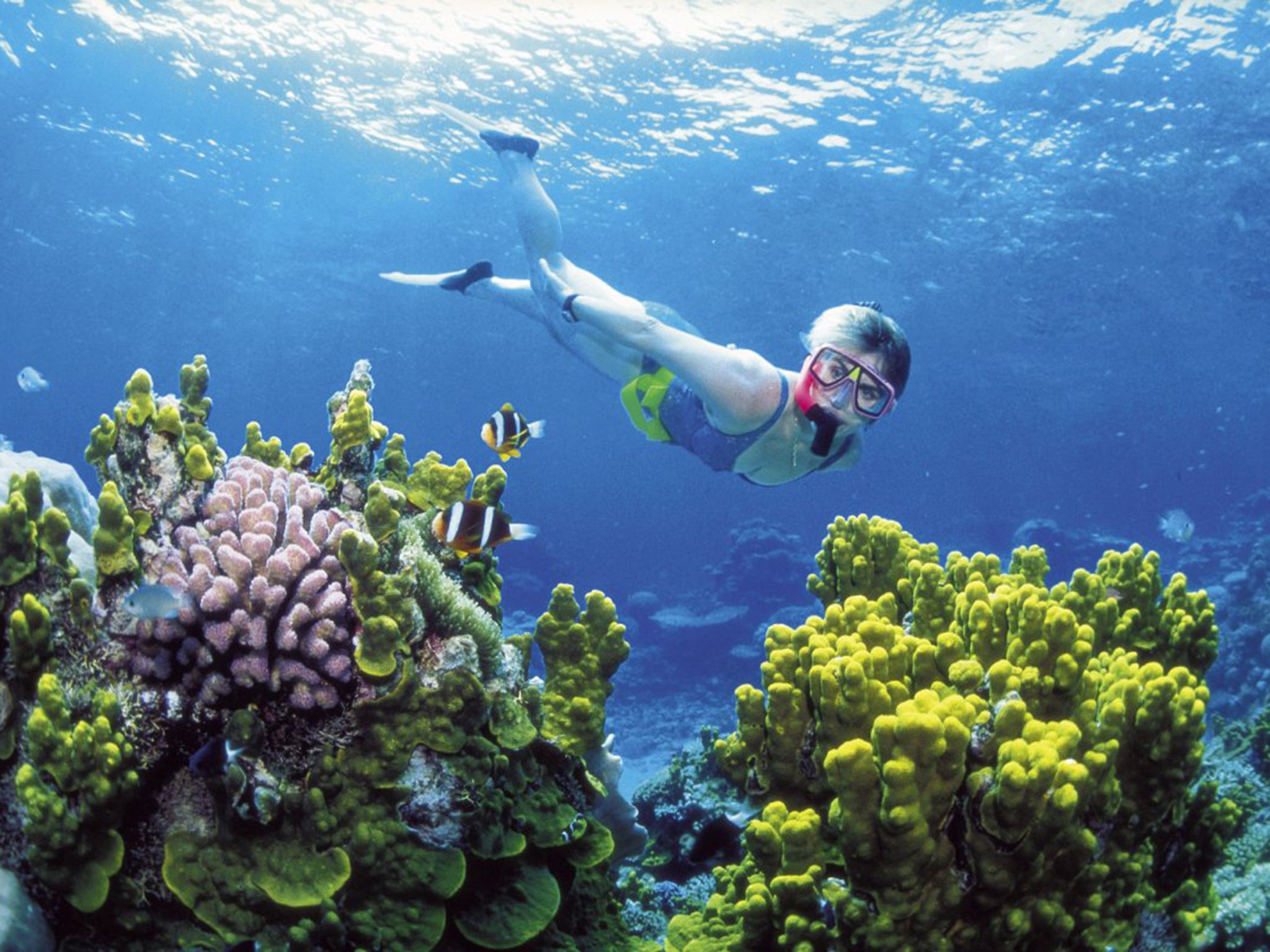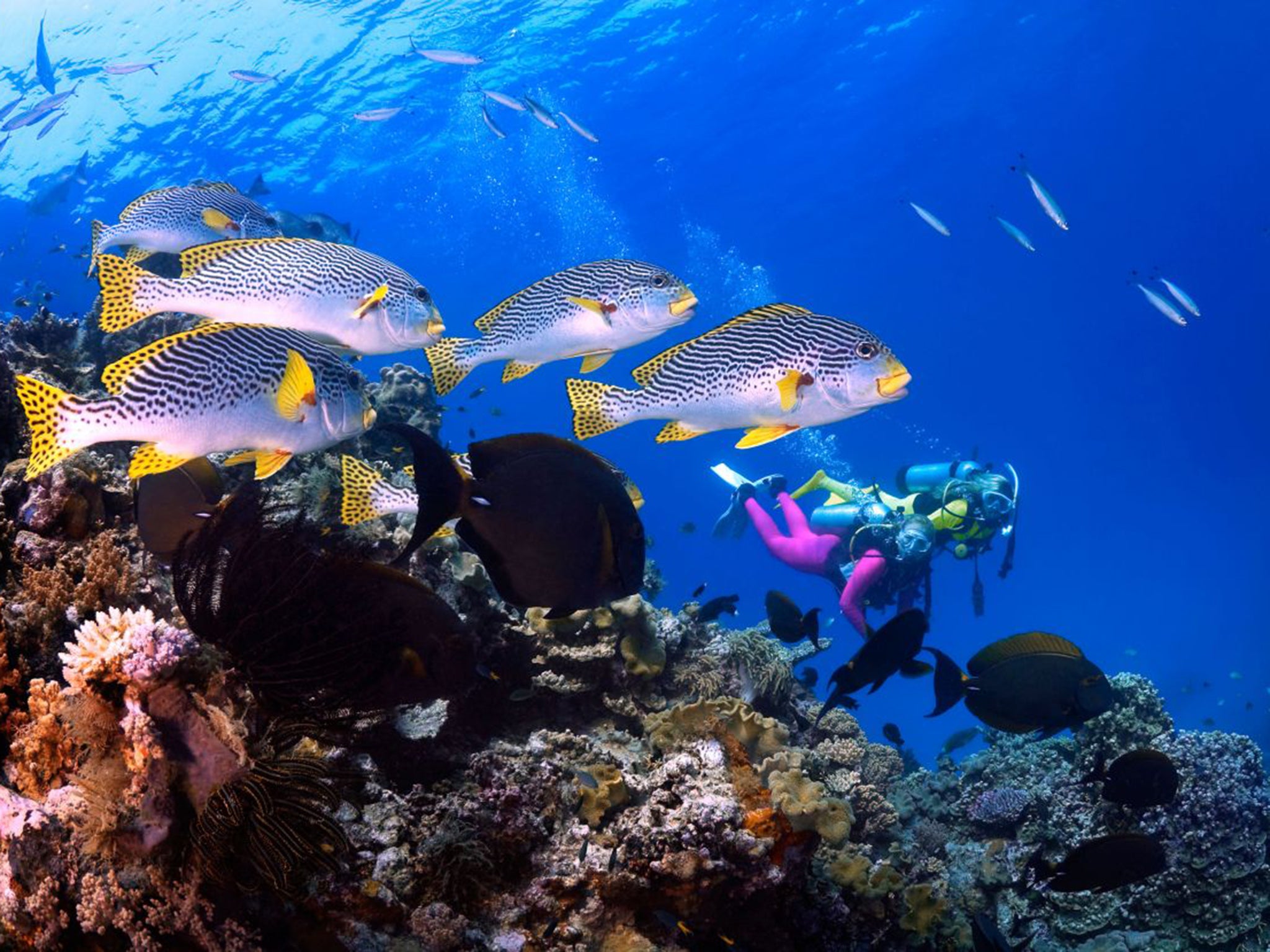Great Barrier Reef declared dead 'after a long illness' in obituary
'To say the reef was an extremely active member of its community is an understatement'

An ‘obituary’ for the Great Barrier Reef – the world’s largest living structure – has been published by Outside magazine, mourning the loss of “an extremely active member of its community”.
While the reef has not actually been completely destroyed, it has experienced severe bouts of coral bleaching in recent years because of the warming water temperature.
And increasing amounts of carbon in the water – much of it absorbed from fossil fuel emissions in the atmosphere – has made the sea more acidic, dissolving the coral.

Coral can recover from bleaching events, providing they do not last too long. New images have shown the reef is now struggling to repair itself.

In the obituary, leading environmental writer Rowan Jacobsen wrote: “The Great Barrier Reef of Australia passed away in 2016 after a long illness. It was 25 million years old.
“For most of its life, the reef was the world’s largest living structure, and the only one visible from space.
“It was 1,400 miles long, with 2,900 individual reefs and 1,050 islands. In total area, it was larger than the United Kingdom, and it contained more biodiversity than all of Europe combined. It harbored 1,625 species of fish, 3,000 species of mollusk, 450 species of coral, 220 species of birds, and 30 species of whales and dolphins.

“Among its many other achievements, the reef was home to one of the world’s largest populations of dugong and the largest breeding ground of green turtles.”
It was born off the east coast of Australia during the Miocene epoch and “its first 24.99 million years were seemingly happy ones”.
“To say the reef was an extremely active member of its community is an understatement,” Mr Jacobsen said.
“The surrounding ecological community wouldn’t have existed without it. Its generous spirit was immediately evident 60,000 years ago, when the first humans reached Australia from Asia … Aboriginal clans hunted and fished its waters and cays for millennia, and continued to do so right up to its demise.”

The reef was declared a World Heritage Site by UNESCO in 1981 – the same year as the first mass-bleaching of its coral took place.
“By the turn of the millennium, mass bleachings were common. The winter of 1997–98 brought the next big one, followed by an even more severe one in 2001–02, and another whopper in 2005–06,” Mr Jacobsen said.
This year, the reef is experiencing “the most catastrophic bleaching event in its history, from which it would never recover” he added.
“As much as 50 per cent of the coral in the warmer, northern part of the reef died.”

He cited Charlie Veron, chief scientist for the Australian Institute of Marine Science, who told Australia’s Saturday paper: “The whole northern section is trashed. It looks like a war zone. It’s heartbreaking.
“I used to have the best job in the world. Now it’s turned sour... I’m 71 years old now, and I think I may outlive the reef.”
The obituary attacked the Australian government for approving a major coal mine that could further add to the reef’s problems and for persuading the United Nations to drop a chapter about the reef from a report about climate change.
It ended by saying: “The Great Barrier Reef was predeceased by the South Pacific’s Coral Triangle, the Florida Reef off the Florida Keys, and most other coral reefs on earth.
“It is survived by the remnants of the Belize Barrier Reef and some deepwater corals.
“In lieu of flowers, donations can be made to Ocean Ark Alliance.”
According to the Australian government, there has been "good progress" towards saving the reef.
In a joint statement, Environment Minister Josh Frydenberg and his Queensland state counterpart Steven Miles said: "Our significant progress implementing so many actions illustrates for UNESCO's World Heritage Committee our staunch commitment to conserving this amazing natural asset."
However they added: "There is no single tool that will deliver the necessary outcomes for the Reef and we will need to use everything at our disposal and do it in a more coordinated and targeted way.
"While good progress is being made, we all need to accelerate actions to improve the health and resilience of this precious global treasure."
Join our commenting forum
Join thought-provoking conversations, follow other Independent readers and see their replies
Comments
Bookmark popover
Removed from bookmarks